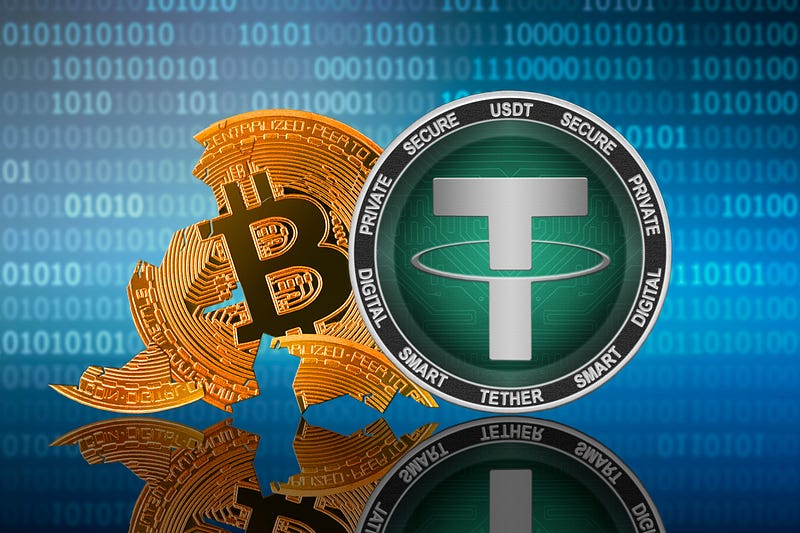The most liquid, stable, and trusted stable coin. Launched in 2014 by a group of Bitcoin enthusiasts and early adopters, Tether is a blockchain-enabled platform designed to facilitate the use of fiat currencies digitally.

Tether is a token backed by actual assets, including USD and Euros. One Tether equals one underlying unit of the currency backing it, e.g., the U.S. Dollar, and is backed 100% by actual assets in the Tether platform’s reserve account. Being anchored or “tethered” to real-world currency, Tether provides protection from the volatility of cryptocurrencies.
Tether enables businesses — including exchanges, wallets, payment processors, financial services, and ATMs — to easily use fiat-backed tokens on blockchains. By leveraging Blockchain technology, Tether allows you to store, send and receive digital tokens person-to-person, globally, instantly, and securely for a fraction of the cost of alternatives.
Tether’s platform is built to be fully transparent at all times.
Tether created the first ‘stablecoin,’ the Tether token (USD₮), which is now one of the most traded tokens in terms of volume and has unparalleled liquidity in the cryptocurrency space. The technology and growth of Tether tokens have, in turn, launched an entirely new industry which central banks and governments are now developing.
Tether works to disrupt the conventional financial system through a more modern approach to money. It has made headway by giving customers the ability to transact with traditional currencies using blockchains as transport layers, without the volatility and complexity typically associated with a digital currency.
As the first blockchain-enabled platform to facilitate the digital use of traditional currencies a familiar, stable accounting unit. Tether has created a revolutionary building block that companies worldwide can use to offer democratized cross-border financial services.
The Tether platform is built on top of open blockchain technologies, leveraging the security and transparency that they provide.
The information provided on the Site is for informational purposes only, and it does not constitute an endorsement of any of the products and services discussed or investment, financial, or trading advice. A qualified professional should be consulted prior to making financial decisions.
Article source: https://tether.to/
Related topics
Comments
Post a Comment